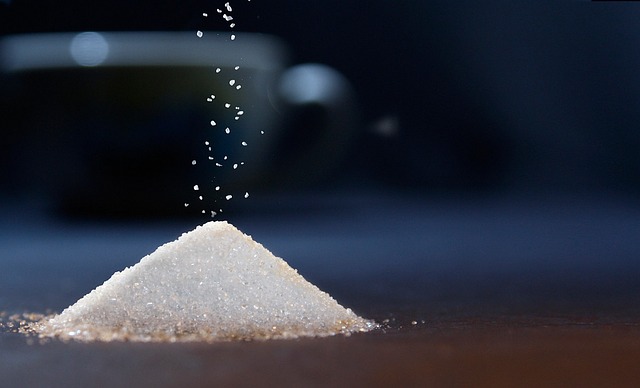Natural sweeteners like Stevia and monk fruit sweeteners may be healthier than refined sugar. Lowering blood pressure and blood sugar levels may be among the advantages.
Lowering your intake of refined sugar can be difficult, but given how dangerous sugar can be, it’s well worth the effort.
Fortunately, many natural sweeteners are truly beneficial.
They’re low in calories and sugar, and they taste delicious.
Here are 5 natural sweeteners that may be healthier than refined sugar.
1. Stevia extract
Stevia is a well-known low-calorie sweetener.
It is derived from the leaves of a plant known as Stevia rebaudiana.
For generations, South Americans have farmed this plant for its sweetness and medicinal properties.
Stevia leaves a variety of delicious chemicals. The two most important are stevioside, and rebaudioside A. Gram for gram, both are hundreds of times sweeter than sugar.
As a result, Stevia is extremely sweet while containing almost no calories.
Furthermore, a few human-based studies indicate that Stevia may have health benefits, including the following health parameters:
- High blood pressure.
- Hypertensive patients in decreasing their blood pressure.
- It has no effect on normal or moderately increased blood pressure levels.
- Blood sugar levels. Stevia may be a useful sugar substitute for diabetics, helping to maintain healthy blood sugar levels.
However, some research indicates that Stevia may have a negative impact on the gut microbiome.
Many individuals despise the taste of Stevia. However, the flavor varies depending on the brand, so you might want to do some research to find a type of Stevia you enjoy.
SUMMARY
Stevia is a zero-calorie natural sweetener that may help decrease your blood sugar level and blood pressure.
2. Erythritol
Another low-calorie sweetener is erythritol.
It’s a natural sugar alcohol present in certain fruits. Powdered erythritol, on the other hand, is almost certainly produced industrially.
Although it has a mild aftertaste, erythritol tastes very much like sugar.
Erythritol does not trigger blood sugar or insulin levels, nor does it influence blood fat levels, such as cholesterol or triglycerides.
It is taken into your body through your intestines, but it is finally expelled intact through your urine.
Although it is often better tolerated than other sugar alcohols, consuming too much at once can cause digestive issues such as gas and diarrhea, especially when combined with other types of sugar such as fructose.
Keep in mind that erythritol is significantly less prone than other sugar alcohols, such as xylitol, to cause stomach difficulties.
Furthermore, one study of 264 young adults found that higher blood erythritol levels were associated with increased belly fat, which could be due to their genetic predispositions to convert sugar into erythritol.
Erythritol has lately come under fire following the publication of tiny research associating it with adverse cardiac events and thrombosis. Eight individuals were told to swallow 30 g of erythritol mixed with water. The subjects’ elevated erythritol blood levels lasted for several days following intake.
This study did not establish that erythritol causes heart disease or stroke, simply that there is a link between the two.
More research is needed to confirm that these potential erythritol side effects are a valid concern.
SUMMARY
Erythritol is a low-calorie sugar alcohol that is exceedingly sweet. According to studies, it is typically safe to eat, though large dosages can induce stomach difficulties.
3. Xylitol
Xylitol is a sugar alcohol having a similar sweetness to sugar.
Xylitol appears to provide certain oral health benefits, such as lowering the risk of cavities and dental decay.
According to some animal studies, it might even improve bone density, hence assisting in the prevention of osteoporosis.
Furthermore, studies show that xylitol can increase the levels of several compounds in the digestive system, which can help support your gut microbiome.
Xylitol also has no effect on blood sugar or insulin levels. However, at high doses, it, like other sugar alcohols, can cause digestive side effects such as abdominal gas and diarrhea.
Keeping this in mind, it is best to use xylitol sparingly.
Finally, if you have a dog, keep xylitol out of reach because it is highly toxic to dogs.

SUMMARY
Xylitol is a widely used sweetener. It’s a sugar alcohol with roughly 2.4 calories per gram and may have some dental and digestive health benefits. According to animal studies, it may enhance bone density and reduce the incidence of osteoporosis.
4. Yacon Syrup
Another one of natural sweeteners is yacon syrup.
It is derived from the yacon plant, which grows naturally in South America’s Andes.
It contains a lot of fructooligosaccharides, which are soluble fibers that nourish the healthy bacteria in your colon.
Because of its high soluble fiber content, yacon syrup may help reduce constipation and provide other advantages.
However, eating too much at once can cause digestive issues.
SUMMARY
Yacon syrup contains a lot of fructooligosaccharides, which feed the healthy bacteria in your gut. It may aid in the prevention of constipation and the promotion of weight reduction.
5. Sweetener made from monk fruit
Monk fruit is a variety of Southeast Asian fruit. It’s frequently used to manufacture monk fruit extract, a natural sweetener.
This is one of natural sweeters that is low in calories and carbs, and some studies suggest it may aid in blood sugar regulation. However, the same study concluded that there is insufficient evidence to determine the safety of monk fruit extract as a food additive.
Monk fruit also contains antioxidant chemicals known as mogrosides, which have been found in tests to lower inflammatory indicators.
There have not been many studies done on this, but it is generally regarded as safe and has not been linked to any negative side effects.
When purchasing monk fruit extract, it is important to read the ingredient label carefully.
SUMMARY
Monk fruit is low in carbohydrates and calories and may aid with blood sugar regulation. It also contains substances that have anti-inflammatory effects.
What about honey and other natural sugar substitutes?
Coconut sugar, molasses, honey, and maple syrup are some common sugary sweeteners that health-conscious people use instead of sugar. These aren’t all that different from sugar.
They may have slightly lower fructose levels and a trace amount of nutrients, but your body won’t know the difference.
One might think these natural sugar substitutes may be a better alternative to regular refined white sugar if used sparingly; they should not be regarded as a quick fix for your health concerns.
In reality, ingesting large amounts of natural sugars or sugar substitutes over time may increase sweet cravings and contribute to concerns such as weight gain and type 2 diabetes.
Sugar’s detrimental effects are entirely dependent on the context. The majority of the linked investigations were conducted on patients who previously ate a high carbohydrate and processed food diet.
Large amounts of sugar can be very dangerous for these persons, especially those who are overweight or have insulin resistance.
Sugar is safe to consume in tiny doses by healthy people. While sugar still has little nutritional value and may cause cavities, consuming small amounts of natural sugars can be included in a well-balanced diet.
Summary
Other popular natural sweeteners used in place of sugar, such as molasses, coconut sugar, honey, and maple syrup, are quite similar to sugar. Long-term consumption of large amounts of natural sugars or sugar substitutes can be harmful to your health.
To Conclude
If you’re concerned about your additional sugar intake, you should consider your entire diet.
It is absolutely possible to indulge in your favorite sweet foods on occasion without negatively impacting your overall health, as long as you don’t indulge too often.
When seeking something sweet, choose wholesome, naturally sweet options like fruit and nut butter. However, fearing or avoiding sugary foods may cause you to become fixated on that one food, increasing cravings and desire.
Finally, it’s essential to maintain a balanced diet that includes eating your favorite foods on occasion.


